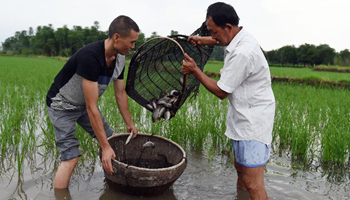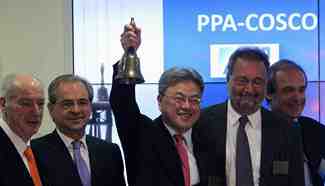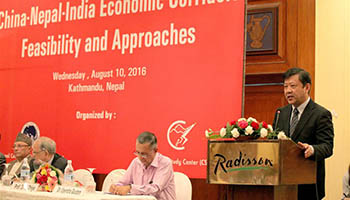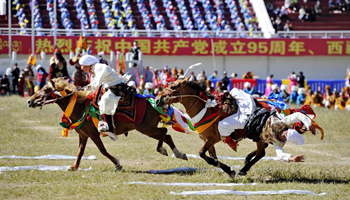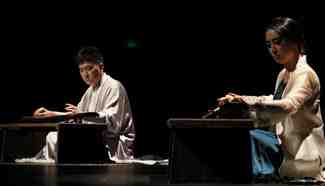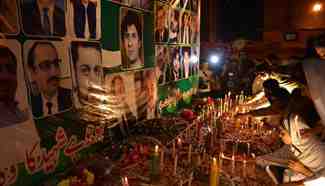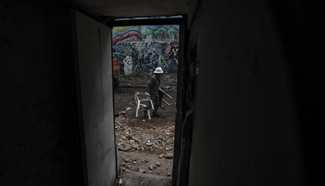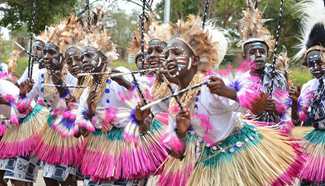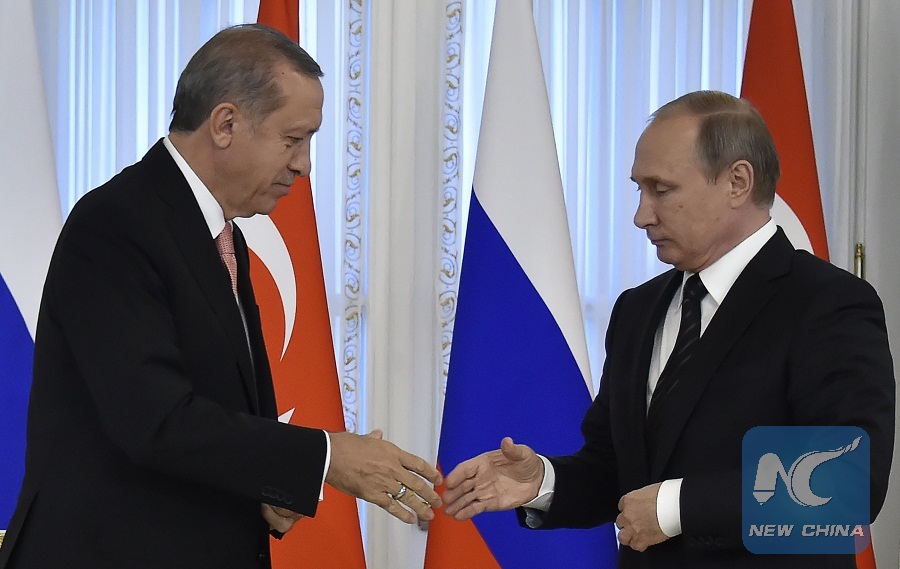
Russian President Vladimir Putin (R) shakes hands with his Turkish counterpart Recep Tayyip Erdogan during their press conference in Konstantinovsky Palace outside Saint Petersburg on August 9, 2016. (Xinhua/AFP Photo)
by Shi Chun
ANKARA, Aug. 10 (Xinhua) -- After months-long rift over the downing of a Russian warplane, leaders of Turkey and Russia stepped up to mend ties to levels beyond what they were before last November's crisis, according to local experts.
The two leaders' meeting in St. Petersburg was in the wake of Turkey's ties with the western bloc having strained.
At the joint press conference, Turkish President Recep Tayyip Erdogan particularly thanked Russian counterpart Vladimir Putin for calling him up in solidarity the day after the July 15 failed coup attempt ahead of any NATO member countries.
He underlined that it was one of the reasons why he made his first visit abroad to Russia after the coup attempt.
"Not a single Western leader has visited Ankara to offer condolences and display solidarity. This has raised questions in the minds of ordinary Turks about whether or not the coup attempt was supported by the West," Ilnur Cevik, the former adviser of President wrote on Daily Sabah.
Turkey's rapprochement with Russia also comes amid accusation of Ankara against the U.S. for hosting Muslim cleric Fethullah Gulen who the Turkish government claims the mastermind of the coup attempt.
The deepening gap between Turkey and its Western allies has a role in this convergence, Gila Benmayor, the Turkish columnist said.
Ankara and Moscow also need to cooperate in Syria, Cenk Balsamis, a journalist expertised on Russia said, "Turkish-Russian ties had been deteriorating since the Syrian crisis. Downing of the Russian jet was just last straw."
In an interview with Russian media before his visit to St. Petersburg,Turkish President Erdogan described Russia "as the most important and primary actor in bringing peace to Syria."
"Turkey and Russia should take steps together to resolve this issue," Erdogan stated.
Ankara and Moscow have been at odds due to differences on Syrian issue as the latter lends support to Syrian President Bashar al-Assad, however Turkey insists the Syrian leader should step down for a solution in the war-torn country.
"I don't expect a long-term security cooperation between Turkey and Russia, but the West should understand the message given by the visit itself," Ahmet Yukleyen, Associate Professor of International Relations at Istanbul Commerce University said.
Economic loss is another main dynamic in Turkish-Russian rapproachment.
Turkey, for its part to compensate its economic loss, wants removal of Russian restrictions on Turkish agricultural products and on Turkish construction companies in Russia.
Ankara also wants re-instituting charter flights in order to recover loss in its tourism revenues, Baslamis said.
Rift between Turkey and Russia has badly damaged Turkish tourism this year, tourism professional Ender Alkoclar said.
Total number of Russian tourists visiting Turkey is 250,000 so far in 2016, while last year's figure from February to June was 2,800,000. Turkey's total revenue from tourism has decreased 40 percent compared to 2015, he added.
"The period of rift in bilateral relations did not help for both Turkey and Russian. Both countries have suffered in economic terms. Interests of them need bilateral cooperation," Balsamis stressed.
Having been in economic crisis since two years, Moscow wants to realize Turkish stream gas pipeline to sell energy to the West since this project is the optimal one, according to Baslamis.
The Turkish Stream, announced in December 2014, was suspended in late 2015 after Turkey downed a Russian Su-24 jet in 2015. The pipeline's expected annual capacity is 63 billion cubic meters.
Russia also wants to guarantee its investment on the Akkuyu Nuclear Power Plant, which has been stalled since the crisis erupted between Ankara and Moscow, Baslamis said.
The two countries sealed an agreement to construct and operate Turkey's first nuclear power plant at the Akkuyu site in 2010. The plant is expected to produce some 35 billion kilowatt-hours per year.
Turkey remains a part of the Western defense system but wants strong ties with its neighbor Russia, according to Ilnur Cevik.
"We have commercial, economic and energy interests that require strong ties between Ankara and Moscow. We also want to be a part of the Shanghai five. But this does not mean we will give up our NATO membership," Cevik wrote.
"In this new world order, we have seen that you should not keep all your eggs in the same basket," he added.
Related:
Turkey establishes direct contact line with Russia over Syria
Turkey and Russia have agreed to keep in close contact regarding the war in Syria in order to avoid a repetition of incidents such as last year's downing of a Russian warplane, a Turkish presidential spokesman told local media on Wednesday. Full story
Turkey, Russia agree to build Syria mechanism: Turkey FM
Turkey and Russia have agreed to build a mechanism on Syria which includes officials from the intelligence services, foreign ministries and armed forces, Turkish Foreign Minister Mevlut Cavusoglu said Wednesday in Ankara. Full story




